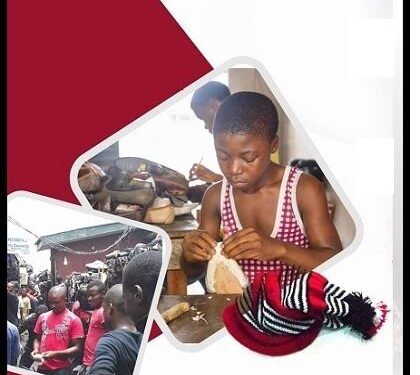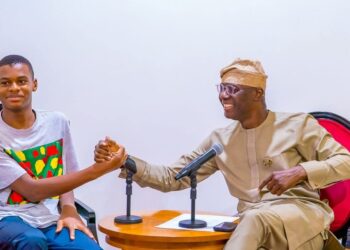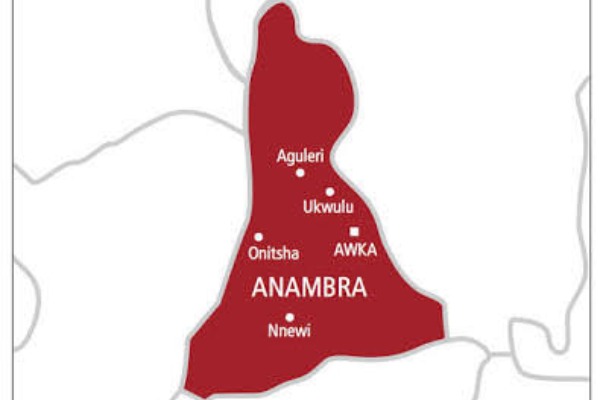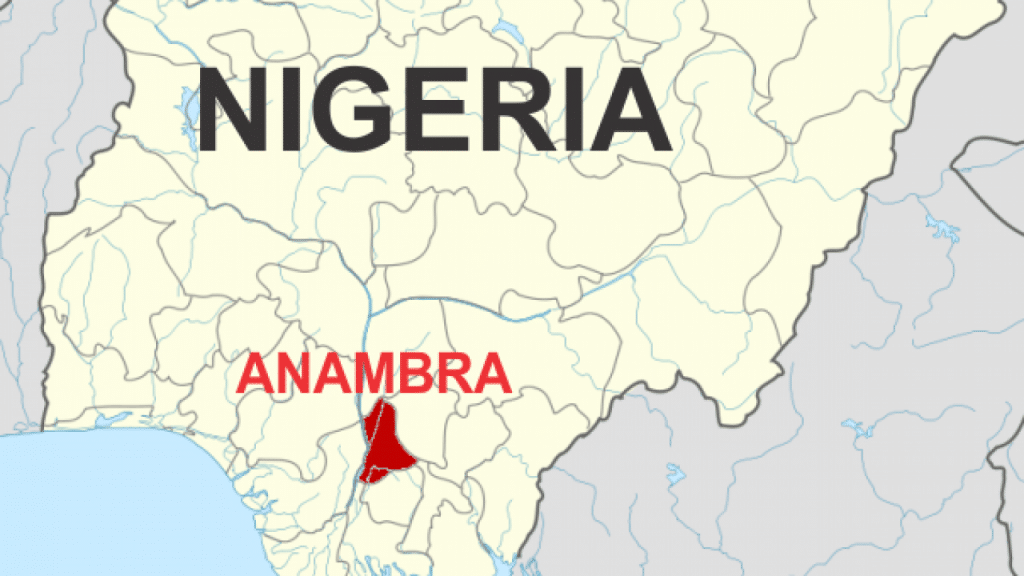“I slept in a passage with my uncle for a short time and then I started sleeping in the shop. He would stay till about 7 or 8 pm and ask me to go inside, then he would lock the door.
There’s no bathroom, there’s no toilet, there’s no window,” Maduka shared while recounting his early days as a young apprentice on Freemen.
For fellow Nnewi indigene Dr Alex Chika Okafor, OON, chairman and founder of the Chicason Group, the story wasn’t much different. The son of a fish seller, young Alex also served as an apprentice to his uncle, which also came with its fair share of trials.
“Once you come for apprenticeship, you have to wake up at 4:30 am – fetch water, prepare food, then set for your master, eat your own, then rush to the market. Before 7 am you’re already in the market,” Okafor reminisced.
Today, Wikipedia puts Maduka’s Coscharis Group net worth at about $500 million, while Okafor’s net worth is estimated at about $400 million.
What is it about Nnewi that breeds such successful businessmen?
Famously nicknamed the Japan of Africa, owing to its emergence as the hub of automobile spare parts dealers, Nnewi is the ancestral home of Maduka and Okafor, among several other business moguls. The small South-East Nigerian town was also touted in a 2017 Forbes Africa article as having “bred more naira billionaires than any other town in Nigeria, and possibly Africa”.
So, what is it about this small town and its culture that have contributed to shaping and producing some of Nigeria’s most successful businessmen? The top guns of Nnewi are unanimous in their submission – the Igbo Apprenticeship System aka Igba Boi.
“When you study the Igbo Apprenticeship System, it’s all-encompassing. It doesn’t only teach you about trade, it teaches you about life, especially if you’re opportune or lucky to have a good master, because that is how you’ll see how the family is run. You learn hands on how things are done – it’s not theory, you see it day-to-day,” says Dikanna Okafor, son of Dr Okafor and deputy group MD of the Chicason Group.
Also speaking on the Igbo Apprenticeship System, creative entrepreneur and DG National Council for Arts & Culture, Obi Asika, says:
“One of the things they [the apprentices] learn is how to fail and keep going. Anybody who is an entrepreneur knows if you don’t fail, you can’t win. You must have tried something that didn’t work, you try again and when you land on something that does work, you stay consistent and execute.”
Why I love my character of Dimkpa
How did Dr Okafor build his multimillion-dollar empire?
Consistency, hard work, and execution are key principles that would guide Okafor in building his multimillion-dollar empire. After making a small fortune from selling fishing materials in Ghana, Okafor hit a stumbling block when then Ghanaian President, Jerry Rawlings, closed the land borders. He would eventually venture out to Hong Kong and Taiwan to import clothes, where he hit it big.
“I was bringing in goods from Hong Kong by air, bringing from Taiwan by sea. The oyibo people I was buying goods from said they wanted to go to Nigeria with me. I called my manager to go to the best furniture company and furnish my house, put air conditioner everywhere before I come back. I also told my uncle to get me a Peugeot 504 GL. I bought it for 5,400 Naira,” Okafor recounted.
On arrival in Nigeria, Okafor took his business partners to his mother’s village, a move that won his partners over.
“When we got back to Taiwan, they called me and said I’m a very sincere and genuine person, that I came from a very poor family and was not ashamed. I took them to my grandmother’s place, so from now on any goods I want they would give me 90 days’ credit. They started giving me five containers, from five to 10, and up to 15 containers on credit. That was how I made it.”
These days, Okafor’s Chicason Group is a diversified conglomerate spanning oil & gas trading and exploration, manufacturing, mining, real estate, project management, agriculture, travel/tourism, healthcare and construction.
When did Dr Cosmas Maduka get his breakthrough?
For Maduka, his unceremonious exit from serving his uncle after five and half years would lead him to his breakthrough.
“My uncle sent me to open his first branch in Jos. I did very well. He opened another branch in Sokoto and sent me there, and from Sokoto he recalled me back to Lagos, and then opened the branch in our hometown, Nnewi. It was while managing our branch in Nnewi I became a Christian.”
One day, Maduka’s uncle arrived unannounced, at the shop Maduka had been managing, only to learn he had locked up the shop to go evangelise. For the average Igbo trader, the worst sacrilege one could commit was to lock up a shop and lose revenue. His aggrieved uncle would dismiss him from service with a paltry 200 Naira.
“At that time, the unwritten law is when your boss decides to part ways with you, he will pay for a store for you for a year or one and half years; the generous ones will pay for two years. He will give you some merchandise from the things he’s selling and then support you with a little cash, that’s how you’re settled. All my boss gave me was 200 Naira.”
Undeterred, a betrayed but excited Maduka took his fate into his hands.
“He looked at me, I laughed. He was wondering what my excitement was. My excitement was not 200 Naira, my excitement was the freedom that today I’m not under anybody’s tutelage I can do with my life what I want to do. I said, ‘Uncle, five years from today, when you hear who I am, your head will be spinning.”
And become somebody, he did. Armed with all the lessons he had learned while serving as an apprentice, Maduka would venture out on his own and make an exciting discovery.
“I made my first breakthrough when I came to Oregun Ikeja. The current Boulos Enterprises had motorcycle crash bars and nobody knew that Boulos had it. Crash bars were very scarce, so I sold the entire quantity with a big markup,” Maduka recounted.
Maduka would go on to make his first million dollars at 24. Over the years, he grew from selling motorcycle parts to becoming the sole distributor of BMW after the German group had previously made five unsuccessful attempts to penetrate the Nigerian market. Coscharis Group is also a leading distributor of Ford and Jaguar Land Rover. Beyond the automobile business, Coscharis Group has subsidiaries spanning manufacturing, ICT, petrochemical, agric- and agro-allied business sectors with footprints across Ghana, Sierra Leone, Côte D’Ivoire, Gabon and most recently Japan.
What was Chief Innocent Ifediaso Chukwuma’s secret to success?
After surviving a near-fatal accident at age six, which left him bedridden in a hospital for six months, business mogul Chief Innocent Ifediaso Chukwuma, CON and CEO of Innoson Vehicle Manufacturers, returned to school with strict instructions from his father not to be issued any form of corporal punishment.
After school, Chukwuma then began an apprenticeship with his brother. It wasn’t long before customers noticed young Chukwuma’s enterprise and urged his brother to send him off to go learn spare parts trading. He would eventually become an apprentice to Pius Maduka, elder brother to Cosmas Maduka, with whom he spent seven months learning the trade.
Upon completion of his apprenticeship, Chukwuma returned to serve his brother for a while, before venturing out on his own.
“I started by learning motorcycle spare parts trade, then my brother opened a business for me after working under him for a while. Then I started producing tractors for farmers. If I had faced only the motorcycle spare parts business without venturing into producing complete motorcycles, we wouldn’t be here today. So, anything you do, be sure to develop it more,” he says.
“Because I knew everything about motorcycle spare parts, I knew I would be able to develop it. I brought down the price of motorcycles from 150 000 Naira to 60 000 Naira. While second-hand was 90 000 Naira, I brought the price of a new one to 60 000 Naira because I discovered why the cost of a new one was high. So I helped develop new ones at cheaper prices.”
Like Maduka and Okafor before him, Chukwuma sits atop the Innoson Vehicle Manufacturing (IVM) empire, manufacturers of cars, motorcycles, tricycles, spare parts and other commodities estimated to be worth about $1.5 billion, and built on the back of hard work, tenacity, grit and dedication; values gained via the Igbo Apprenticeship System.
“If you observe, everyone now buys second-hand cars but I will introduce new ones that will be as cheap as Tokunbo cars the way it is in other countries, that’s my focus now. In a short while, you will see the prices of cars will reduce to the old prices they used to be, so people can get used to buying brand new cars,” Chukwuma said, of his plans for the future.
“The funny part of this story is that I’ve not ventured anywhere, I’m still at Nnewi,” Chukwuma concludes, pointing out that he’s able to do business with his customers from around the world in their native language.
Could a competitive spirit be the crucial ingredient to Nnewi businessmen’s success?
With hard work and dedication at the core of the average Nnewi businessman’s ethics, many believe competition is the secret sauce that spurs the Nnewi and larger Igbo businessmen on. This sentiment is echoed by Prof Ndubisi Ekekwe, engineer/author at the Tekedia Institute.
“I always tell people, it’s going to be nearly impossible for any person to compete with some of these guys from the South-Eastern part of Nigeria because they don’t just want to make money, they’re competing because that is a way of life.”






